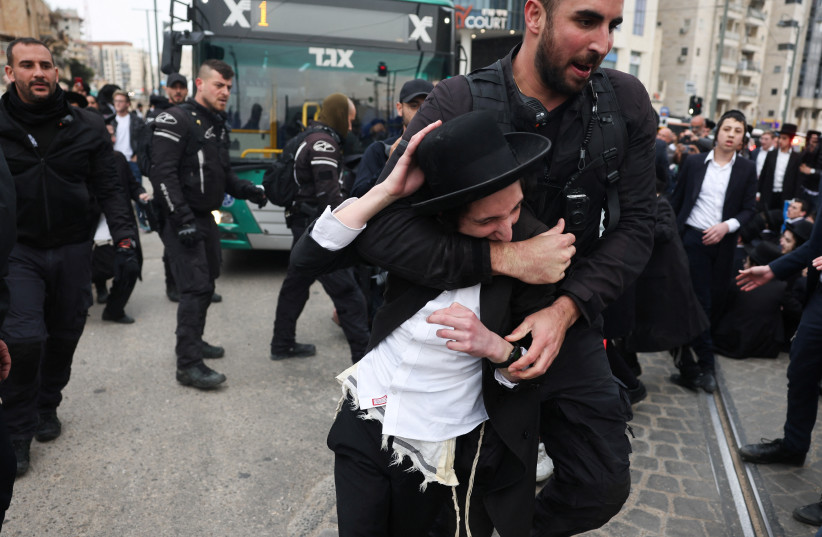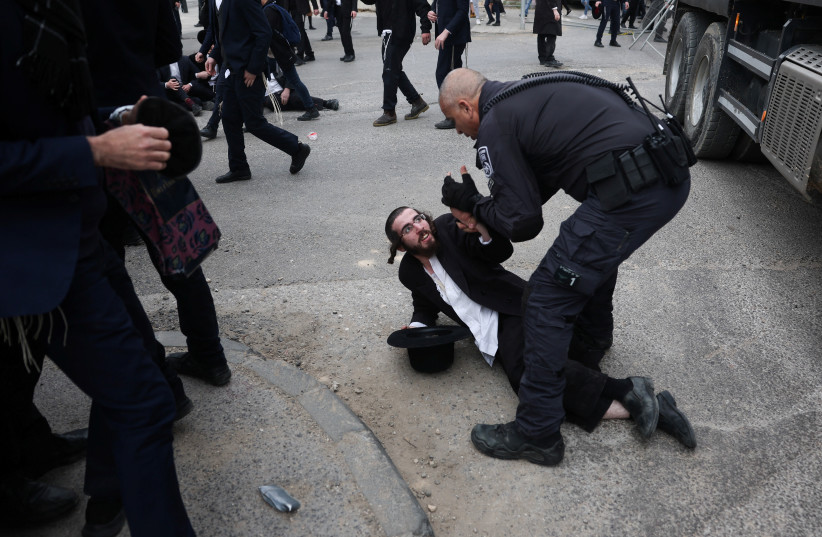Only 22% of Israelis support the continued exemption of haredim from the IDF draft, according to a new survey published on Monday by Hiddush, an NGO campaigning for religious freedom and equality.
The data, collected from 600 Israeli adults with a sampling error of +4.0%, was carried out as the High Court held a hearing on the mass exemption of ultra-Orthodox yeshiva students from military and civil service.
The majority of polled Israelis (78%) supported canceling the existing exemption of the ultra-Orthodox from conscription to the IDF. The survey found this belief to be more commonly held than a survey carried out a week prior by the Smith Institute, which found only 48% of people oppose the continued exemption of haredim in IDF drafts.
The Smith Insitute survey found an additional 30% supported a limited continuation of the exemption to a limited quota of outstanding yeshiva students but felt the remaining haredim should enlist.

Differences found between Jews of different observance levels
Nearly all (97%) of Jews identified as secular supported the complete cancelation of the exemption policy. A further 87% of Jewish Israelis were classified as ‘traditional-non-religious public’ and 72% 72% of the ‘traditional-religious‘ Israelis also supported the cancelation.
Less than half (47%) of Zionist Religious respondents agreed that the exemption policy should be canceled, and 87% of ultra-Orthodox respondents answered they supported the continuation of the exemption policy.

Changes throughout time
While the percentage of respondents supporting the continuation of the exemption remained unchanged from the previous year’s survey (22%), the percentage of those supporting a complete cancellation of the survey grew from 31% to 48%.
Additionally, those who expressed support for the continuation of the exemption, based on a limited quota, decreased from 47% to 30%.
Political differences in exemption support
Likud voters were most likely to answer they agreed with a complete cancellation of the draft exemption (78%), with only 56% of Religious Zionism and Otzma Yehudit voters answering the same.
Differences based on geographic origins
Only 2% of immigrants from the former Soviet Union supported a continued exemption policy for the haredi draft. Conversely, 70% supported the complete cancellation of the exemption policy and 28% supported the exemption of only a limited quota of outstanding yeshiva students.
Rabbi Uri Regev, Esq., CEO of Hiddush for Religious Freedom and Equality, commented on the findings of the survey, remarking that "It is clear that if the politicians listen to the public this time, they will not be able to continue the obscene deals with the Ultra-Orthodox parties, in which parties from right, center and left facilitated outright discrimination, buying the votes of the ultra-Orthodox in exchange for the exemption of hundreds of thousands of ultra-Orthodox youth from military service.
“In the next elections, the public will expect to hear a commitment from the parties that they vote for not to subjugate the security of the state, the public coffers and civil liberties to the Ultra-Orthodox parties.
“Perhaps a new era in the history of Israel may emerge from the pains of the war, an era in which the promise of the Declaration of Independence for freedom of religion and conscience and civil equality will be fully implemented. And in the meantime - the Supreme Court needs to know that a huge majority of the public supports a Court’s ruling in favor of the sea change that is needed regarding the conscription of yeshiva students."
